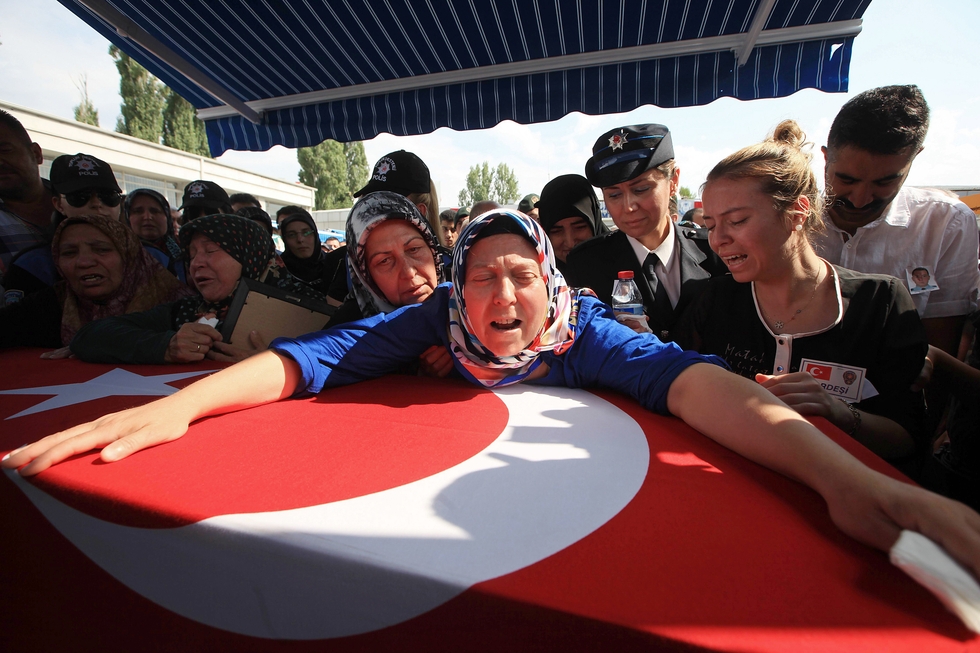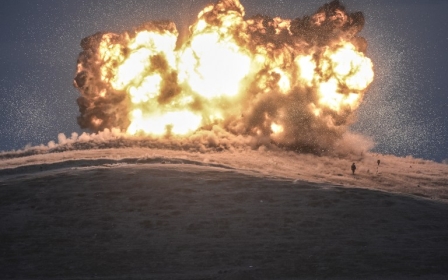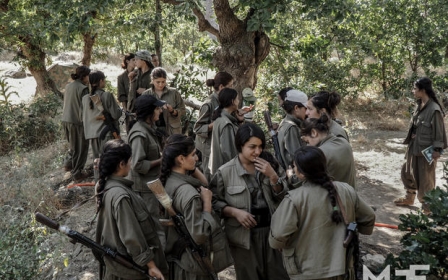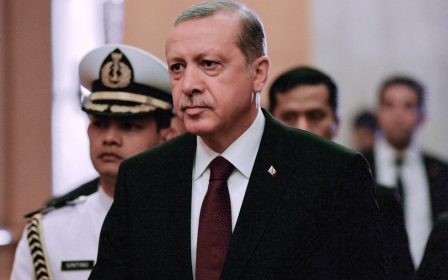Turkish soldier killed in new suspected PKK militant attack

A soldier was killed in southeastern Turkey and a regional headquarters of the country's ruling party was hit by a bomb attack in new violence suspected to have been carried out by Kurdish militants, the army and sources said on Saturday.
The soldier, a captain, was killed in a rocket and long-range gun attack late Friday on a military post in Beytussebap district in southeastern Sirnak province, the army said in a statement. Four other soldiers were injured.
While Turkish soldier Ali Alkan succumbed to his injuries at a local hospital, the four soldiers injured in the attack are still being treated in hospital, sources added.
An operation to capture the suspects is underway in the area, reported the Anadolu Agency.
The army said the attack was carried out by the "Separatist Terror Organisation," in a reference to the outlawed Kurdistan Workers Party (PKK), which is designated as a terrorist organization by Ankara, the European Union and the United States as well as a number of other countries.
Meanwhile, suspected members of the PKK threw two bombs outside the regional headquarters of the ruling Justice and Development Party (AKP) in the southeastern city of Diyarbakir.
The attack severely damaged a police water cannon truck parked outside, injuring a policeman who was inside, the official Anatolia news agency reported.
The PKK has been staging daily attacks against the Turkish armed forces as the military keeps up air raids and military operations against its strongholds in southeast Turkey as well as northern Iraq.
Over 50 members of the Turkish security forces have been killed in attacks reportedly carried out by the PKK.
Separately, 10 customs officials and a driver were reported missing in the Van region of eastern Turkey close to the border with Iran, Anatolia reported, saying it was possible they had been abducted by the PKK.
The PKK regularly carries out kidnappings in Turkey's southeast which normally end with the detainees' release.
The PKK, which was founded in 1978, took up arms against the Turkish state in 1984 in a full-blown insurgency to seek independence for the Kurdish-dominated southeast, although its demands later moderated to autonomy and greater rights.
Tens of thousands of people have lost their lives in the conflict and the latest strife has left in tatters a 2013 ceasefire declared by the PKK's jailed leader, Abdullah Ocalan.
The PKK stepped up its attacks following the killing of 32 Kurdish activists in a bomb attack – allegedly by an Islamic State militant - in the Turkish border town of Suruc in July.
The attack has heightened tensions between Turkey and Kurdish groups, which have claimed that Ankara has been lenient in its policies towards IS.
The incident ended a shaky two-year ceasefire with the AKP-led government which was part of the peace process aimed at ending the bloody 40-year period.
In response to the PKK attacks, about 1,600 IS and PKK members have been arrested since 24 July in a wave of counter-terrorism raids.
Police have been carrying out nationwide operations to apprehend suspected members of the PKK, IS, and DHKP-C (the far-left Revolutionary People's Liberation Party-Front) - all three of which are designated as outlawed organisations by the Turkish government.
Turkish forces have also killed a total of 390 people in air attacks targeting the PKK, according to anonymous security sources quoted by Anadolu Agency on 9 August.
New MEE newsletter: Jerusalem Dispatch
Sign up to get the latest insights and analysis on Israel-Palestine, alongside Turkey Unpacked and other MEE newsletters
Middle East Eye delivers independent and unrivalled coverage and analysis of the Middle East, North Africa and beyond. To learn more about republishing this content and the associated fees, please fill out this form. More about MEE can be found here.




